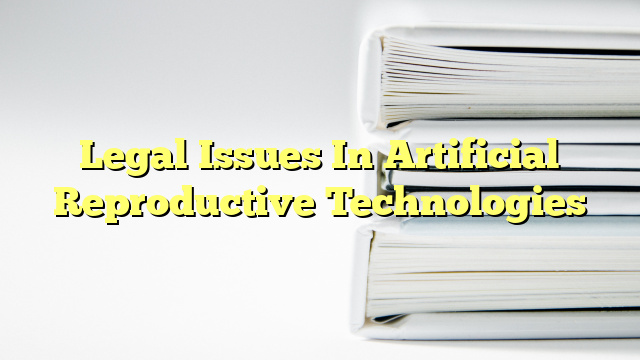Legal Issues in Artificial Reproductive Technologies
Table of Contents
- Assisted Reproductive Technologies
- Artificial Insemination
- Problems Associated with Artificial Reproduction
- IVF Controversies
Assisted Reproductive Technologies
Assisted reproductive technologies (ARTs) are medical procedures used to help infertile couples, lesbian couples, and single individuals to become pregnant. Examples of ARTs include in vitro fertilization (IVF), gamete intrafallopian transfer (GIFT), zygote intrafallopian transfer (ZIFT), and intrauterine insemination (IUI). ARTs are not always successful, and they can be very expensive.
The legal and ethical issues surrounding assisted reproductive technologies (ARTs) are complex. In many countries, there are laws and regulations that govern ARTs. For example, in some countries, ARTs may only be used to help married couples, while in other countries, single individuals can also use ARTs. In some countries, sperm donation is not allowed, while in other countries, it is allowed. There are also laws that govern the use of frozen embryos, the use of donated eggs or sperm, and the use of donor embryos (embryos created from the eggs and sperm of donors).
In addition to laws and regulations, ethical considerations must also be taken into account. For example, some people argue that women who use ARTs should be allowed to choose their own sperm donor, while others argue that only medically approved sperm donors should be used. In addition, some people argue that embryos created through ARTs should not be destroyed, while others argue that embryos should be destroyed if they are not used in a pregnancy.
Artificial Insemination
Artificial insemination is a type of ART that involves inserting sperm directly into the uterus, using a syringe or other device. There are several legal and ethical issues associated with artificial insemination. In some countries, artificial insemination is only allowed with the consent of both partners. In other countries, the sperm donor must be medically approved. In some countries, only married couples are allowed to use artificial insemination, while in other countries, single individuals and lesbian couples can also use artificial insemination.
Problems Associated with Artificial Reproduction
There are several problems associated with artificial reproduction. In some cases, the technology may not be successful and the couple may not be able to conceive a child. In addition, ARTs can be very expensive and may not be covered by insurance. The risks to the health of the mother and the unborn child must also be taken into consideration.
IVF Controversies
IVF is one of the most common ARTs used by couples and single individuals. However, there are several controversial issues associated with IVF. One of the most controversial issues is the destruction of unused embryos. Some people argue that unused embryos should be destroyed, while others argue that they should be preserved for potential future use. Another controversial issue is the use of donor embryos. Some people argue that embryos should only be donated from married couples, while others argue that single individuals and lesbian couples should also have access to donor embryos. Finally, some people argue that women should be allowed to choose their own sperm donor, while others argue that only medically approved donors should be used.


Technological advances in the field of artifical reproductive technologies bring with them various legal considerations and complexities. It is important to understand the current laws to ensure the safety and well-being of all involved.